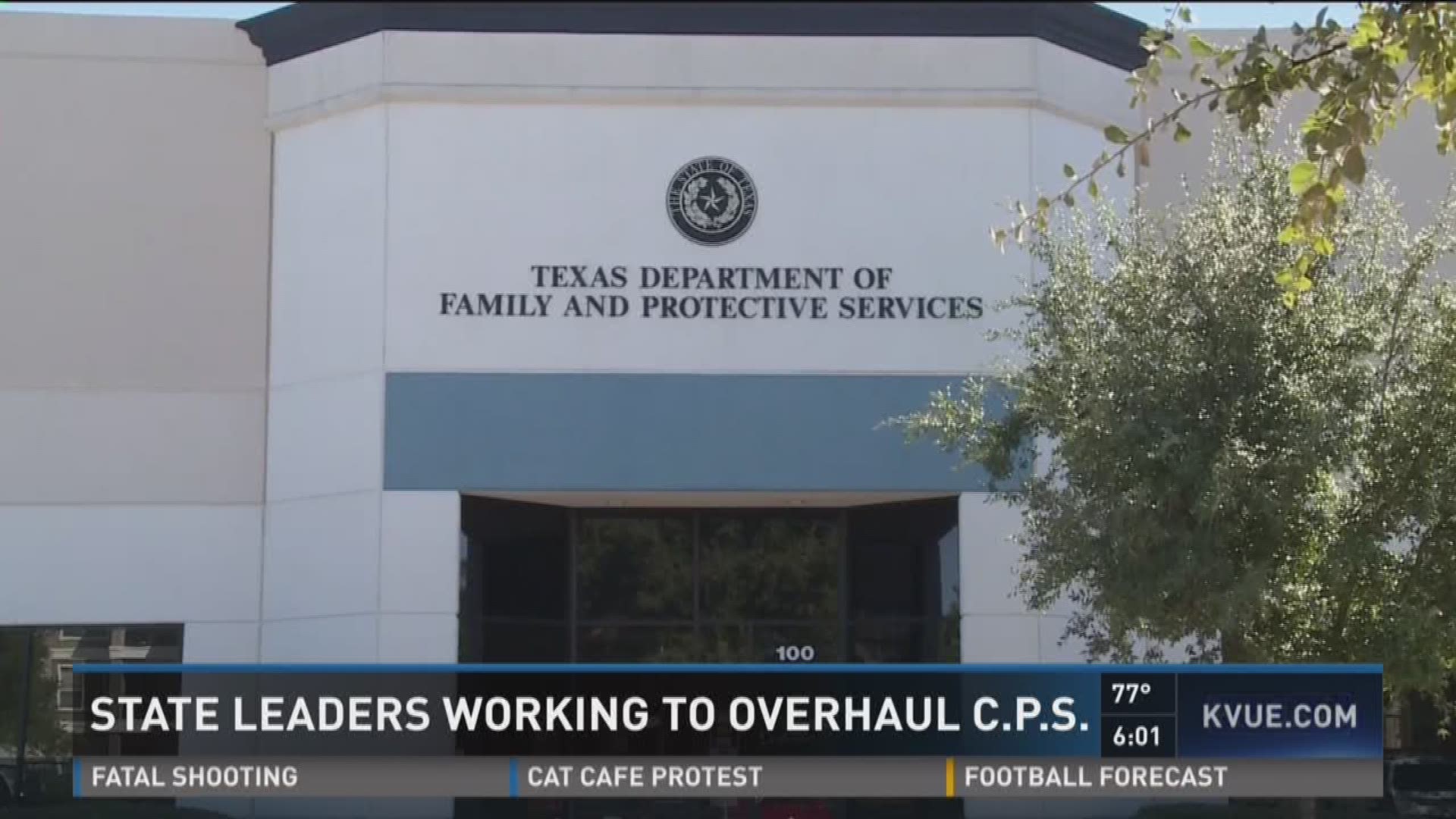The new regional director for Child Protective Services in Central Texas said she wants to focus on improving retention of CPS staff.
This week, the Commissioner for the Department of Family and Protective Services said they plan to hire 450 new case workers and 100 new special investigators.
It's part of the efforts to overhaul Child Protective Services.
Marta Talbert has been in the position for a little more than one month. As state leaders work to overhaul CPS, four regional directors were not rehired this year, one of them being the director for the Central Texas Region. The Department of Family and Protective Services commissioner said CPS needs top to bottom accountability.
"I want to see that we're making good safe decisions for our children,” said Talbert.
Talbert was appointed to the position that covers 30 Central Texas counties in September. She has been working for CPS for 19 years, several of those as an investigator. As regional director, Tablert said she wants to create a culture of trust, boost morale and retain her staff.
"I think it helps having all the lessons learned throughout all the years of what went well, what did not go well,” said Talbert.
In order to keep CPS workers, Talbert said they'll work on support and development, but the biggest issue to address, is the work load.
"We have got to make improvements and changes to ensure we retain our staff,” said Talbert.
Right now in Region 7, there are 625 case worker positions, 539 of those are filled.
In 2015, they had a 28 percent turnover rate in Central Texas.
"I think we hire well, and we hire a lot it's just we won’t ever get to where we need to be if we cannot retain our staff,” said Talbert.
She wants it to be at a low enough level, that case workers can "do their jobs well."
"Ultimately the workers out there, they want to do a good job, they want to make sure children are safe, they want to make sure that we are connecting them with permanent homes, and families and relatives that can take care of them, but in order to do a very, very good job they have to be developed, as well as we have to help manage workloads,” said Talbert
On average in Central Texas, each investigator works 19 cases per month.
"I think that's ultimately where we need to go is to make sure we're keeping our staff so they can do the work that needs to be done out there,” said Talbert.
Talbert said right now they're in a constant hiring stage because of the worker turnover. According to her, about 80 percent of the positions on their investigation staff are full. In a year, she would like to have that number to 90 percent. Talbert added she's excited for the opportunity to change things in CPS.
One thing she acknowledges needs work, Face to Face interaction between case workers and children.
"If we don't see children, we can't asses safety,” said Talbert.
Earlier this month, KVUE reported data showing that of the cases open at the beginning of September - 31 percent of the children were not seen by a case worker within the 24 or 72 hour time requirement.
In Region 7, it was 35 percent.
"If you look at dealing with families, they're not always going to be home on a particular day,” said Talbert.
Talbert wants to stress protocol, which includes tactics like: going back to the home at different times, contacting friends, relatives and neighbors, and using special investigators to find the family.
"I think that people need to hear that truly we have staff out there everyday who want to do right by families and children,” said Talbert.
Talbert said she also wants to review the contracts they have with Child Placing Agencies, which recruit and license foster homes. She said they want to make sure they're finding the best placements for children.
In the letter from the Department of Family Services Commissioner Hank Whitman to state leaders, he said they'll implement new investigation models.
That would allow two investigators to work together when locating and interviewing children.
He also said those 550 new workers would be dispersed in targeted areas, including Travis County.

